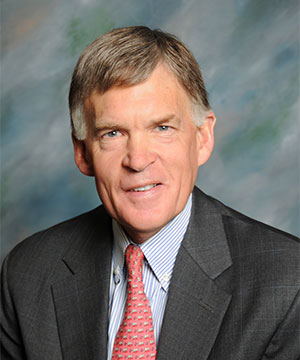 A Message from President & CEO Tom Bracken
A Message from President & CEO Tom BrackenAs New Jersey’s fiscal year 2026 budget deadline approaches, the stakes have never been higher for our economy, our employers, and our future. In just one month, Governor Murphy and the Legislature must finalize a budget that either sets us on a sustainable path, or pushes us further toward a fiscal cliff. We must choose wisely.
We are living in a time of deep uncertainty – politically and economically. As we look to the future, one thing is abundantly clear: if we are to navigate the challenges ahead and unlock the opportunities waiting on the other side, leadership is the key.
New Jersey’s economy was already facing much uncertainty when President Trump made his tariff announcement. In February, Gov. Murphy proposed a record-high state budget including $1.2 billion in new fees and taxes – and increased spending. There is the looming threat of huge federal aid cuts that could upend the proposed budget and jeopardize vital services to residents. Massive budget deficits are projected for future state budgets. The cost of living for New Jersey businesses and residents is sky-high causing increased pressure. There is uncertainty regarding who our next governor will be – and the direction that person will take the state.
The past months have been marked by unprecedented economic uncertainty – globally, nationally, and right here in New Jersey. Businesses thrive when they can plan for the future with confidence, yet today’s economic climate is inherently unpredictable. From inflationary pressures to tariff wars, executives across industries are grappling with challenges that make long-term investment and expansion difficult.
In short, there’s an old truism: Uncertainty stifles prosperity.
Over 1,000 New Jersey business and government leaders joined the New Jersey Chamber of Commerce’s Walk to Washington & Congressional Reception last week, marking a triumphant return for the two-day event after a five-year hiatus.
The bottom line: The Walk remains the state’s premier business networking event. And in this pivotal gubernatorial election year, it also served as a powerful rallying call.
From our packed charter train to D.C. to the Congressional Reception and our highly attended gubernatorial forum, one message was clear: New Jersey’s business community is united in its commitment to building a stronger state economy at a much faster pace.
As a new presidential administration takes the helm in Washington, the nation finds itself at a pivotal economic juncture. The priorities emerging in federal discussions – supporting innovation and artificial intelligence, lowering taxes for businesses, reducing burdensome regulations, bolstering energy independence and supporting small businesses – should resonate deeply with New Jersey’s leaders. These initiatives are not partisan rallying cries; they are pragmatic solutions to the challenges that hinder economic growth and opportunity in the Garden State.
This month’s elections underscored that economic concerns are a top priority for voters. As we move forward, it’s critical for policymakers – at both the state and federal levels – to prioritize initiatives that foster economic growth and stability.
The Murphy administration took an important step on the economy by issuing the recently announced executive order creating a state Economic Council – a concept the New Jersey Chamber of Commerce has long championed. The Council, composed of state government leaders and members of the business community, will focus on a critical goal: finding actionable ways to make New Jersey a more attractive place to do business.